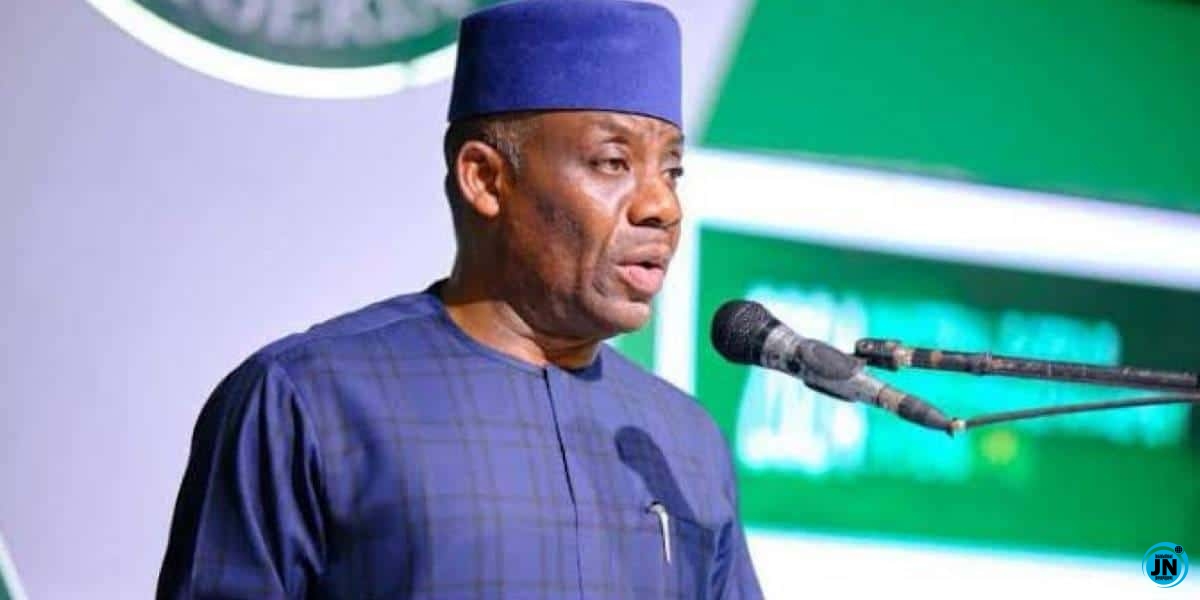
The Federal Government (FG) has announced the complete termination of the Bilateral Education Agreement (BEA) scholarship programme, a long-standing initiative that enabled select Nigerian students to study abroad. The decision was made public on Tuesday by the Minister of Education, Dr. Maruf Alausa, during a strategic meeting with the leadership of the National Association of Nigerian Students (NANS).
According to Dr. Alausa, the BEA scholarship scheme has become riddled with poor oversight, mismanagement, and a grossly unequal distribution of educational resources. He stated that the programme no longer aligns with the government’s vision for an equitable and sustainable education system in Nigeria.
“We discovered major lapses in how the programme is run,” Alausa noted. “Students are sent abroad to study courses that are fully available in Nigerian universities, and the cost of sustaining this is unfair to the millions of students studying here without support.”
Established through partnerships with foreign governments such as those of China, Russia, Hungary, Morocco, Algeria, Egypt, and Serbia, the BEA programme aimed to foster educational exchange and expose Nigerians to international learning environments. However, the Minister revealed that many students sent under the programme reported being abandoned by the government, prompting a comprehensive review of its sustainability.
Dr. Alausa recalled a striking example from 2024, when shortly after taking office, he was asked to approve a budget of N650 million for just 60 students heading to Morocco. He said he declined the request on the grounds that it was an imprudent allocation of public funds, particularly in a country where thousands of students face educational hardship daily.
“Some of these students are going to Algeria, a French-speaking country, to study English and Psychology—courses we not only teach in Nigeria but also teach better,” he explained. “There’s no logic in that. It doesn’t benefit the system.”
The Minister further revealed alarming figures, stating that in 2025 alone, the government had planned to allocate N9 billion to support approximately 1,200 students abroad under the BEA programme. He described this as deeply unjust and a reflection of skewed priorities in a country with limited education funding and growing student needs.
“We are spending billions to send a few people abroad while millions struggle in our own institutions. That must change,” he said firmly.
Highlighting the lack of transparency and monitoring, Dr. Alausa expressed concern that the government was paying for student travel and stipends but doing little to evaluate their academic progress or welfare abroad.
He confirmed that although the BEA has been cancelled for new applicants starting from 2025, existing beneficiaries currently abroad will be allowed to complete their studies. In the meantime, all outstanding stipends have been cleared up to December 2024, with additional funds requested to offset currency-related issues.
“We will honour our commitment to those already studying under the programme,” Alausa assured. “However, moving forward, our focus will be on local capacity building.”
He added that the government will redirect all funds previously earmarked for the BEA towards developing and expanding local scholarship schemes that will benefit a broader section of the student population.
“That money will now support scholarships for Nigerian students in Nigeria. We believe in investing where it matters most,” he stressed.
The Minister also addressed what he described as “blackmail” by some BEA recipients who took to social media to complain rather than follow official communication channels. He urged students to be more responsible in engaging with the government.
Reacting to the development, NANS President Olushola Oladoja expressed strong support for the government’s decision, praising Dr. Alausa for his bold reforms and commitment to educational equity. He described the move as a step in the right direction to ensure that public funds are used to improve learning opportunities for the majority of Nigerian students.
“This is a courageous and strategic decision. We applaud the Ministry of Education for putting Nigerian students first,” Oladoja said.

